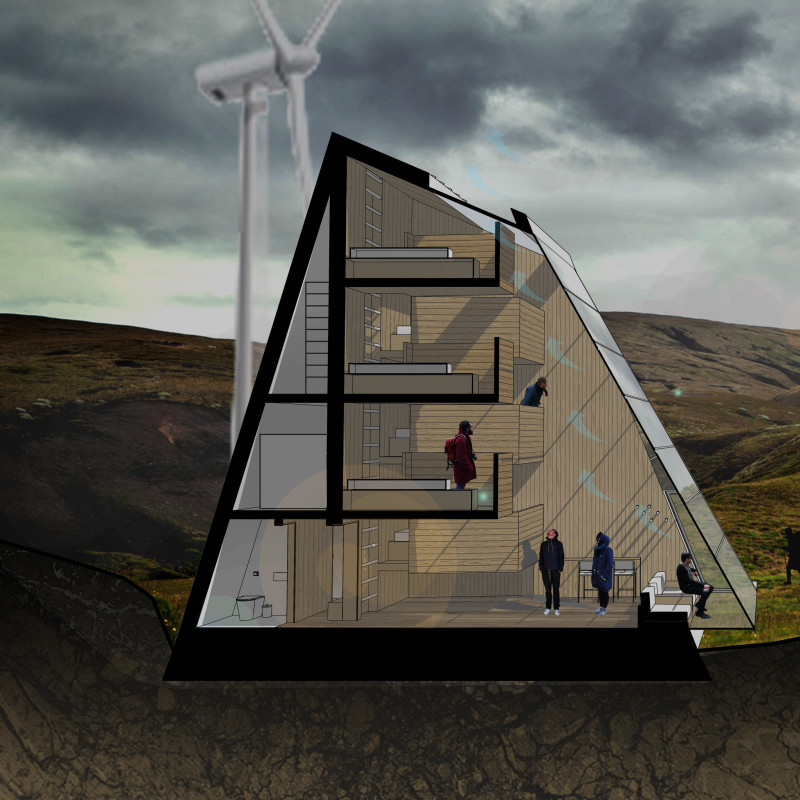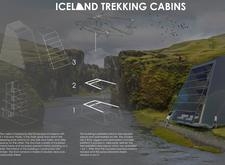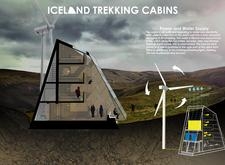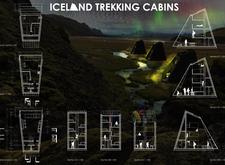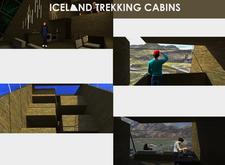5 key facts about this project
# Analytical Report on the Iceland Trekking Cabins
## Overview
Located within the stunning landscape of Iceland, the Trekking Cabins address the unique challenges posed by the surrounding volcanic terrain. The design focuses on sustainability, functionality, and enhancing the overall trekking experience. By integrating with the natural environment, the cabins serve as practical and aesthetic accommodations for outdoor enthusiasts, capturing the essence of Iceland's wild beauty.
## Spatial Organization and Functional Zoning
The layout of the cabins is organized around a central spine, which optimizes movement and enhances functionality. This central axis facilitates the allocation of sleeping pods, utility spaces, and bathrooms, providing an efficient distribution of areas while maximizing comfort for guests. The design incorporates multifunctional spaces to foster communal interactions, allowing for shared activities such as cooking and socializing, thereby enriching the visitor experience amidst the rugged landscape.
## Material Specifications and Sustainability Features
Constructed with an insulated metal frame and seamed metal cladding, the cabins ensure durability and thermal efficiency against Iceland’s harsh weather conditions. Timber interiors create a warm atmosphere, contrasting with the exterior's industrial aesthetics, while double clear polycarbonate sheets provide optimal natural lighting.
In alignment with sustainable practices, the cabins feature a rainwater harvesting system that supplies water needs and a wind turbine capable of generating electricity, supplemented by energy storage solutions to ensure reliability. These components contribute to the self-sufficiency of the cabins, minimizing their ecological footprint while allowing them to function effectively in a remote location.
The extensive use of glass promotes a connection to the environment, emphasizing biophilic design principles that enhance occupants' psychological well-being by providing immersive views of the captivating landscape.


